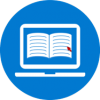Objectives
On completion of this activity, you will be able to:
- define key concepts pertaining to information literacy
- discuss the importance of information literacy in the 21st century
What is information literacy?
According to the Business Dictionary online, information is
[d]ata that is (1) accurate and timely, (2) specific and organized for a purpose, (3) presented within a context that gives it meaning and relevance, and (4) can lead to an increase in understanding and decrease in uncertainty.
Information is valuable because it can affect behavior, a decision, or an outcome.Read more: http://www.businessdictionary.com/definition/information.html
The Information Literacy Competency Standards for Higher Education were endorsed in 2004 by the American Association for Higher Education and the Council of Independent Colleges in the US. According to the Standards, an information literate person is able to:
- Determine the nature and extent of information needed
- Access the needed information effectively and efficiently
- Evaluate information and its sources critically and incorporate selected information into his or her knowledge base and value system
- Use information effectively to accomplish a specific purpose
- Understand many of the economic, legal, and social issues surrounding the use of information, and accesses and uses information ethically and legally
Dudeney, Hockly and Pegrum (2014: 22) define information literacy as the
“ability to evaluate documents and artefacts by asking critical questions, assessing credibility, comparing sources, and tracking the origins of information”.
Checking the accuracy and timeliness of all documents and artefacts found on the web is now the responsibility of each and everyone. Students of a foreign language to ask critical questions about the information they find online, to compare it to what they already know or to widely accepted facts that they have memorised, and most importantly, to compare and contrast multiple sources of information (see Dudeney, Hockly and Pegrum, 2014: 23).
Why is Information Literacy important?
Information Literacy lies at the core of lifelong learning. It empowers people in all walks of life to seek, evaluate, use and create information effectively to achieve their personal, social, occupational and educational goals. It is a basic human right in a digital world and promotes social inclusion of all nations.
Alexandria proclamation on Information Literacy and Lifelong Learning (2005)
What’s next?
- Analysing websites: critical evaluation of online information
- About Wikipedia
Related activities
| Context of use | Title | Related themes | Languages |
|---|---|---|---|
| CPD materials | |||
| Information literacy, what is it? | Reading Skills: Analysing - Developing critical reading skills | FR | |
| Analysing websites: critical evaluation of online information | FR | ||
| About Wikipedia... | FR | ||
| Activities for the classroom | |||
| Evaluating websites | |||
| How to help your students identify fake news | |||
| Independent learning | |||
| Information literacy, what is it? | FR | ||
| How to evaluate the credibility and reliabity of a website | FR | ||
| About Wikipedia... | FR | ||
Source/attribution: DigiLanguages Author: Alexandre Jacquot & Françoise Blin
The Web We Want offers lesson plans for teachers and activities (created by young people for young people) such as Time for some critical thinking (pdf).
Vous trouverez ci-dessous des liens vers des ressources que vous pouvez exploiter en classe.
Les ressources du site Internet sans crainte
Le site Internet sans crainte propose de nombreuses ressources (vidéos, fiches pédagogiques, etc.) destinées à un jeune public. Le thème, Je cherche, j’ouvre l’oeil offre des vidéos (qui peuvent être également utilisées pour des activités de compréhension orale, ainsi qu’une fiche pédagogique (pdf) qui peut vous donner des idées pour la classe de français.
Le site The Web We Want
- Une ressource pédagogique en français pour encourager l’esprit critique: L’heure est à l’esprit critique (pdf).
- Des séquences pédagogiques
Pour aller plus loin…
-
L’info chez les jeunes : à l’heure de l’infobésité, comment s’informent-ils ? (Internet sans crainte)
-
La littératie à l’ère de l’information, OCDE, Statistiques Canada
- Bibliothèques et Information Literacy : Un Etat de l’Art, Sylvie Chevillotte, Bulletin des Bibliothèques de France
Hier ein Artikel zum Begriff Filterblase aus der Zeit.
Klicksafe bietet Artikel zu den Themen Quellenkritik und Suchmaschinen für Kinder und Jugendliche im Internet.
Materiale aggiuntivo in italiano
Da vedere:
- Guarda un breve video dall’Istituto Comprensivo di Cassina de’ Pecchi, Milano sulla storia di Internet in tre minuti
- Qui Alessandro Ghebreigziabiher spiega la storia di Internet ai bambini
- Il canale YouTube del Consiglio regionale del Piemonte ha trasmesso il documentario Il giorno che l’Italia scoprì Internet
- Qui puoi trovare la prima puntata del Corso di alfabetizzazione informatica di Guide informatica gratis. Se vuoi puoi seguire tutte le puntate
Da leggere:
- Un articolo di “Tecnica della scuola” sull’alfabetizzazione in didattica digitale
- Una pagina di Skuola.net per i docenti, con link a software gratuito per l’alfabetizzazione informatica

